
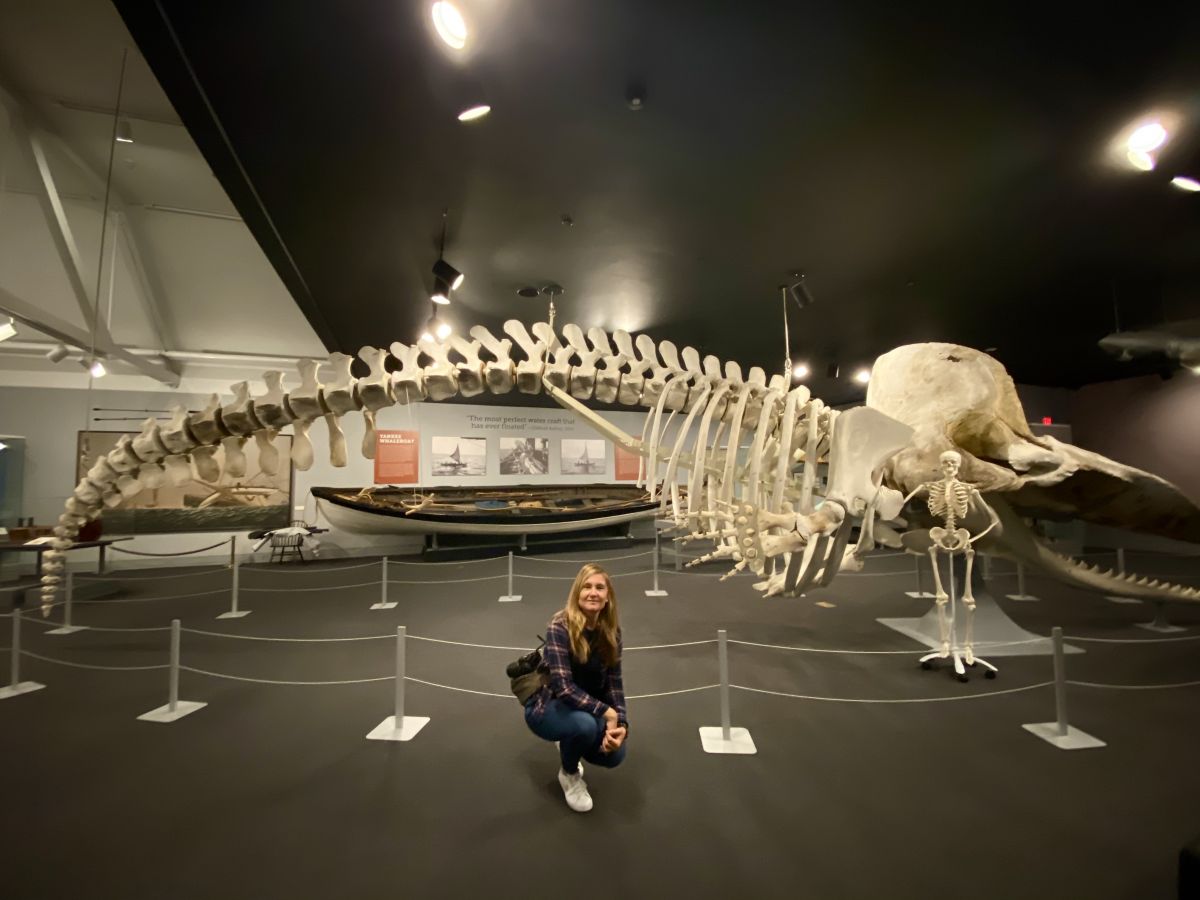
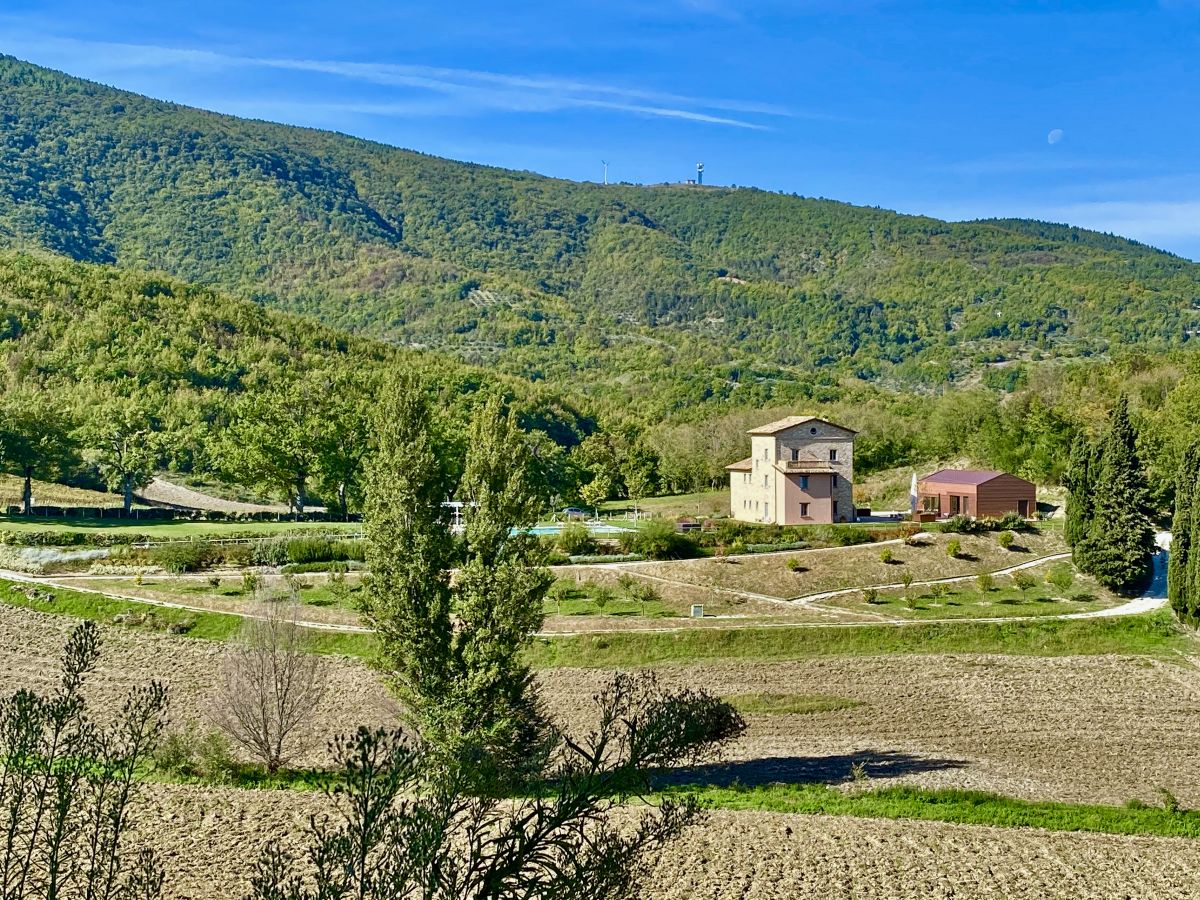
In Italian
What to do in Cartagena: the literary itinerary discovering the locations and the books by Gabriel Garcia Marquez.
A walk among the buildings and las calles de la ciudad vieja, the historic venues and the Getsemani’s murals on the trail of “Gabo”. A tour discovering the locations he loved most, where he found himself a writer, where he loved to spend time and where he set some of his most famous novels.
“When I write about Cartagena, it’s like I’m digging into my memory and my childhood memories to see what I can find.”
(Gabriel Garcia Marquez)
Two “events” in Gabriel Garcia Marquez’s life were so important that made him one among the greatest writers in the 20th century – elements worthy of that magic realism that he himself then developed through his works giving life to a downright literary movement.
The fantastic tales by grandma Tranquilina Iguarán Cotes – a great expert of histories and legends related to the Columbian traditions, and the encounter – by chance – with the town Cartagena de Indias.
Marquez arrived in Cartagena when as a law student he was forced to leave Bogotà following the disorders of 1948. A friend of his (a writer) found him an accommodation at a hotel in the very central Parque De Bolivar – where today there’s the Montesacro Resto Bar, the bench of the park in front of the actual entrance is the one he was used to stop – and a job as a reporter for El Universal.
Right during his first report, he discovered himself as a writer, interviewing the survivors of a shipwreck occurred offshore the coast: according to the tales listened to, he created an unexpected successful serial-editorial that then he gathered in his first work “Relatos de un naufrago”.
Gabriel Garcia Marquez lived for long periods in Cartagena: first alone when he was attending the Cartagena University, and then with his wife Mercedes.
And upon his wife’s desire he bought the land near the prestigious Sofitel Legend Santa Clara Hotel – today a wonderful house-museum for students and Fine Arts – from the Presentación’s Nuns to build their home – provided that he accepted to tell with them the Rosary for a month (he, an unbeliever).
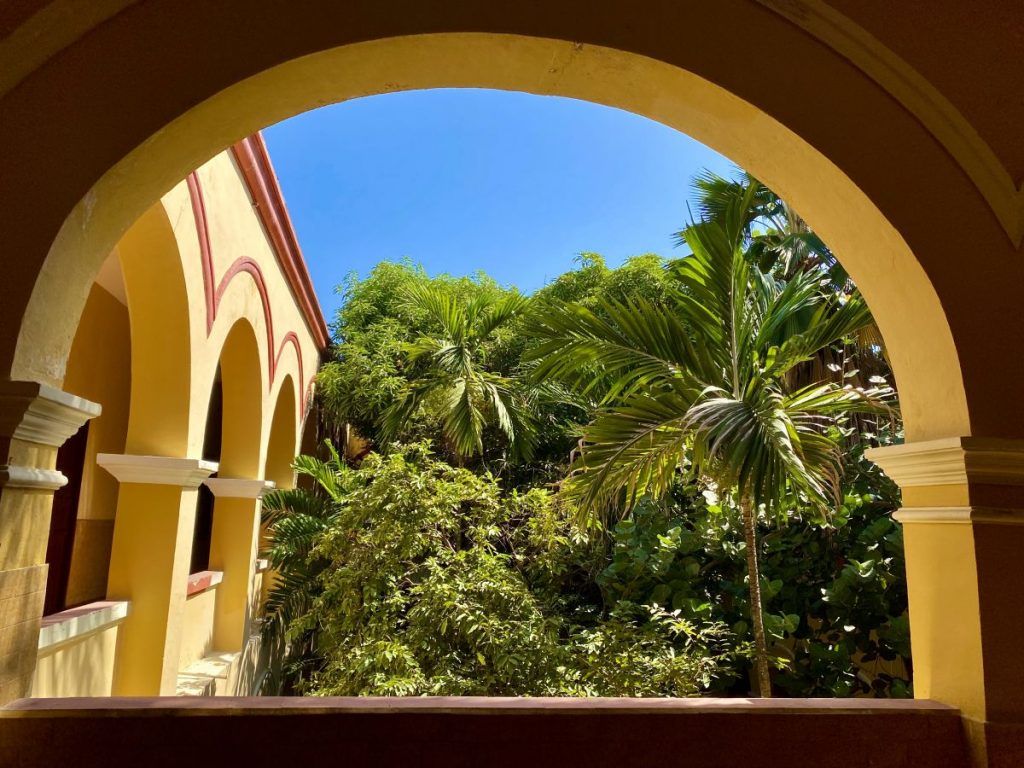
What to do in Cartagena: the itinerary through the locations of Gabriel Garcia Marquez, la Presentación
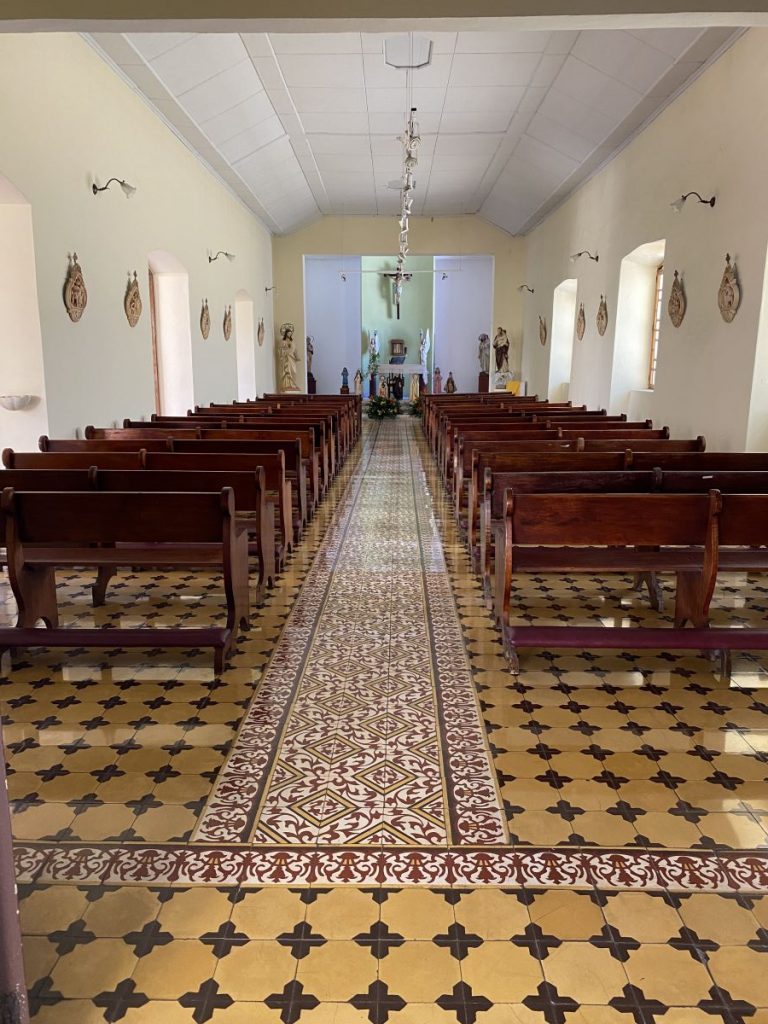
What to do in Cartagena: the itinerary through the locations of Gabriel Garcia Marquez, la Presentación
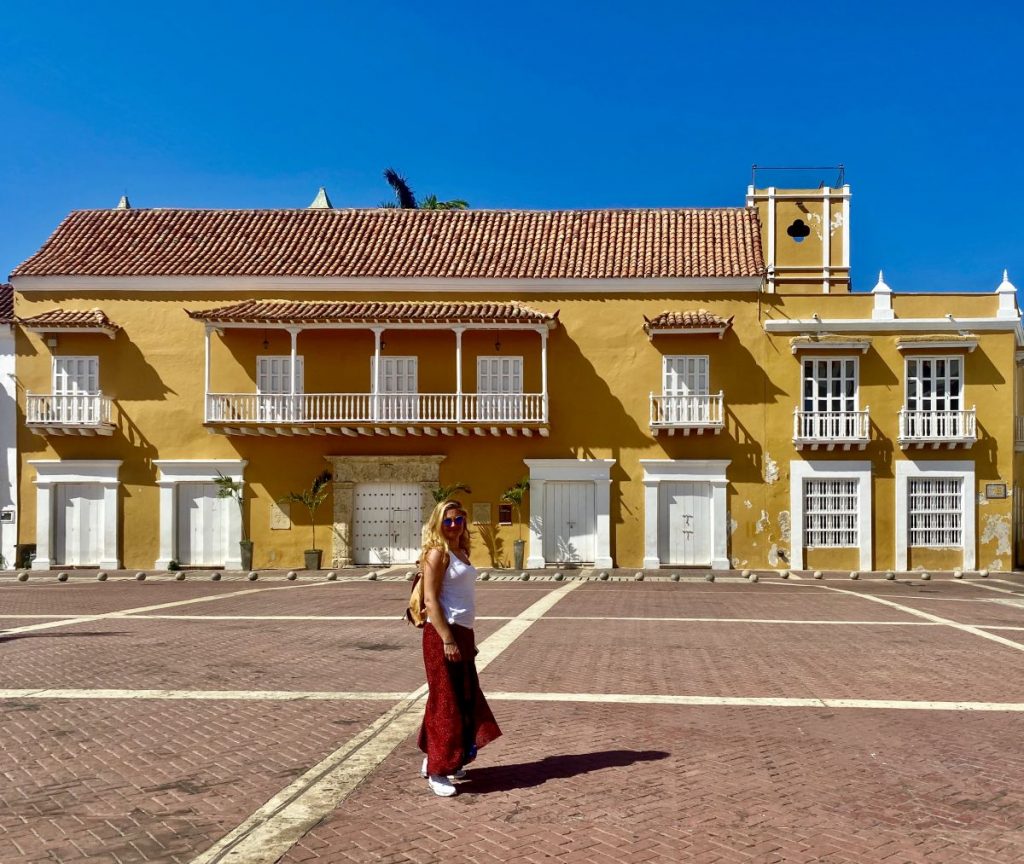
What to do in Cartagena: the itinerary through the locations of Gabriel Garcia Marquez, Piazza della Dogana
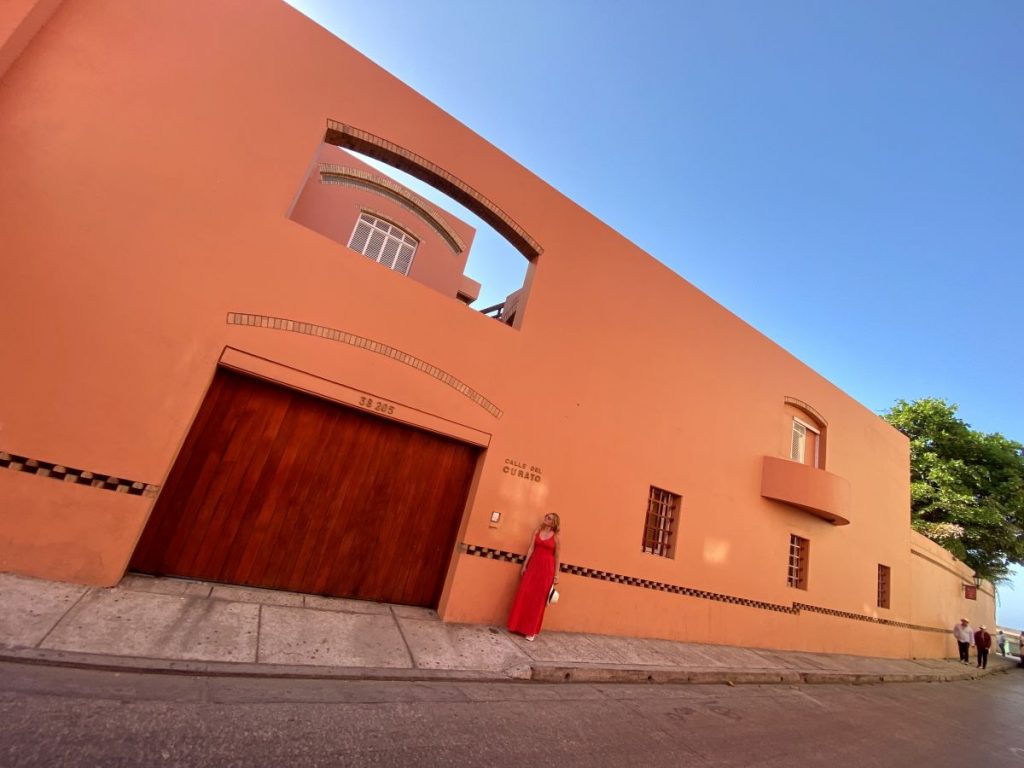
What to do in Cartagena: the itinerary through the locations of Gabriel Garcia Marquez, Gabo’s house
And despite its wonderful property – that still today makes good show of itself along the final part of Carrera 7 towards the old Cartagena Walls: every time he entered the town – passing strictly by the Watch Tower – he preferred to stay at the Hotel Caribe. There he enjoyed himself for a good part of the day at the Café Havana in the colorful and vibrant neighborhood of Getsemani (in Calle 29 you’ll find two wonderful murals dedicated to him). And listen to music, talk with the old friends and observing people and landscapes of his Cartagena, perfect and unaware main characters of his tales.
Not many people know that a part of his ashes – the other part is in Mexico City, where his grave is – are preserved inside a small memorial dedicated to him in the Merced’s Claustrum, a space at the Cartagena University that can be reached by everyone.
The entrance is at 3840, Carrera 4.
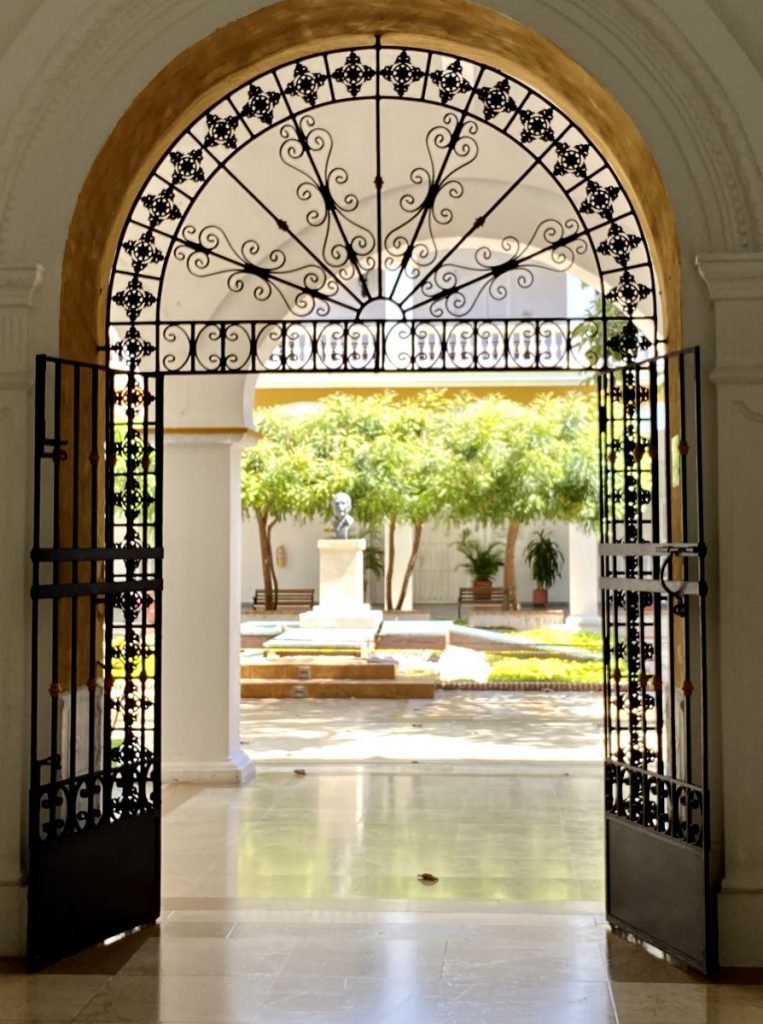
What to do in Cartagena: the itinerary through the locations of Gabriel Garcia Marquez: Merced’s Claustrum
Marquez – or simply Gabo, as his friends called him – loved to repeat that in order to write he needed heat, physical and spiritual.
Cartagena de Indias was one among the few places in the world being able to offer him both of them.
For “One Hundred Years of Solitude”, his most loved and read book – it is said that it is the second most read novel in Spanish by far in the world, after “Don Quixote de La Mancha” by Miguel de Cervantes Saavedra – he made himself inspired by the imaginary Macondo, with the familiar atmospheres and sagas of the beautiful village of Santa Cruz de Mompox. But for “Love in the time of Cholera” and “Of Love and other Demons” he made himself guide by his grandmother’s tales and by the atmospheres of his Cartagena.
Find down here some useful cues to follow his plot strolling through the calles of Cartagena vieja.
The Watch Tower Square, that one Marquez loved so much so that he chose it as entrance every time he returned to the town – “I was passing through the walls of the Watch Tower, and I feel to be born again every time…” (quote) – hides that colonial gem, the so-called Sweets’ Porch, the place where in the novel Florentino Ariza loved to wait for and follow Fermina Daza choosing the sweets for the week.
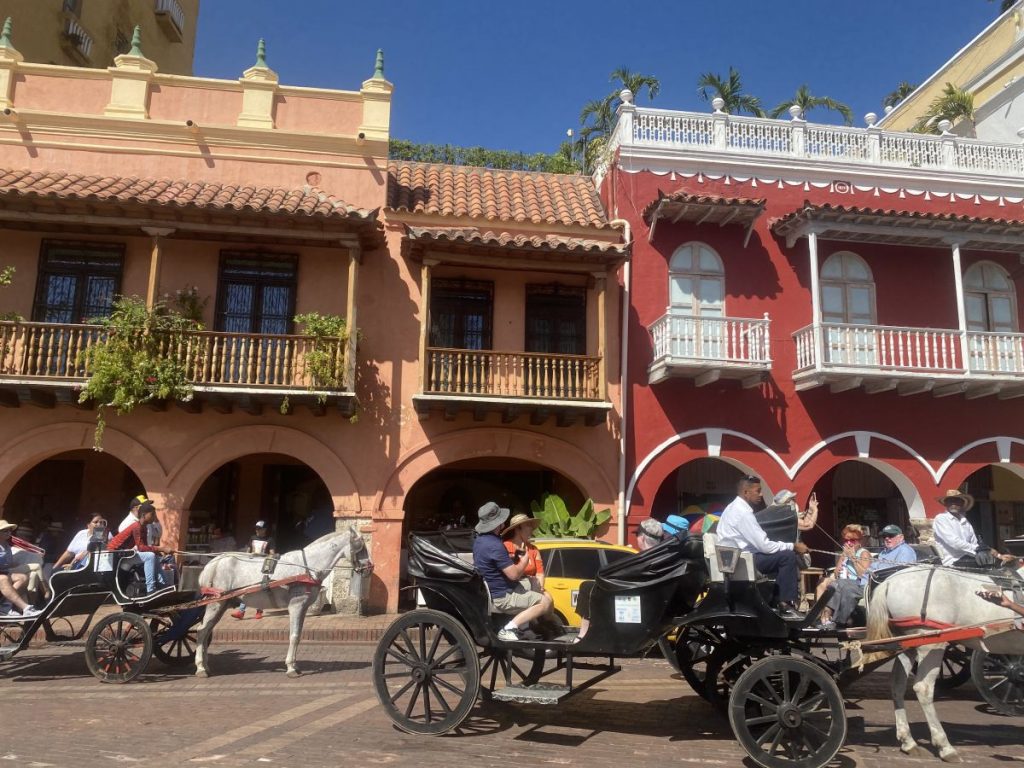
What to do in Cartagena: the itinerary through the locations of Gabriel Garcia Marquez, The Sweets’ Porch
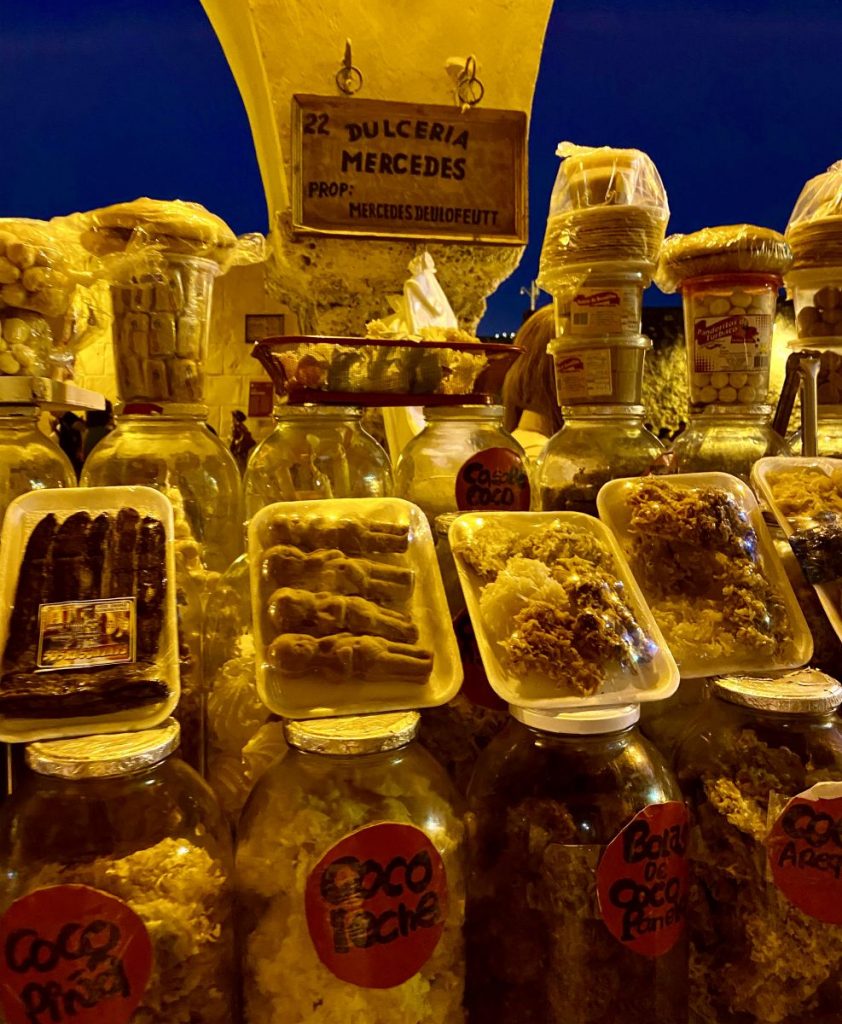
What to do in Cartagena: the itinerary through the locations of Gabriel Garcia Marquez, the Sweets’ Porch
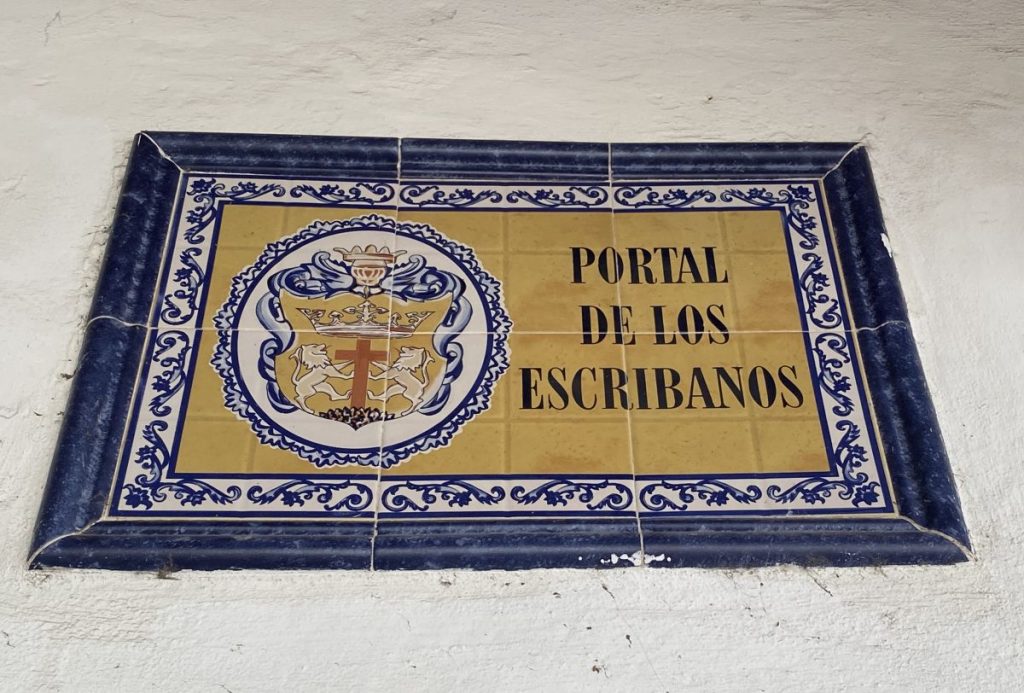
What to do in Cartagena: the itinerary through the locations of Gabriel Garcia Marquez, the Scribes’ Porch
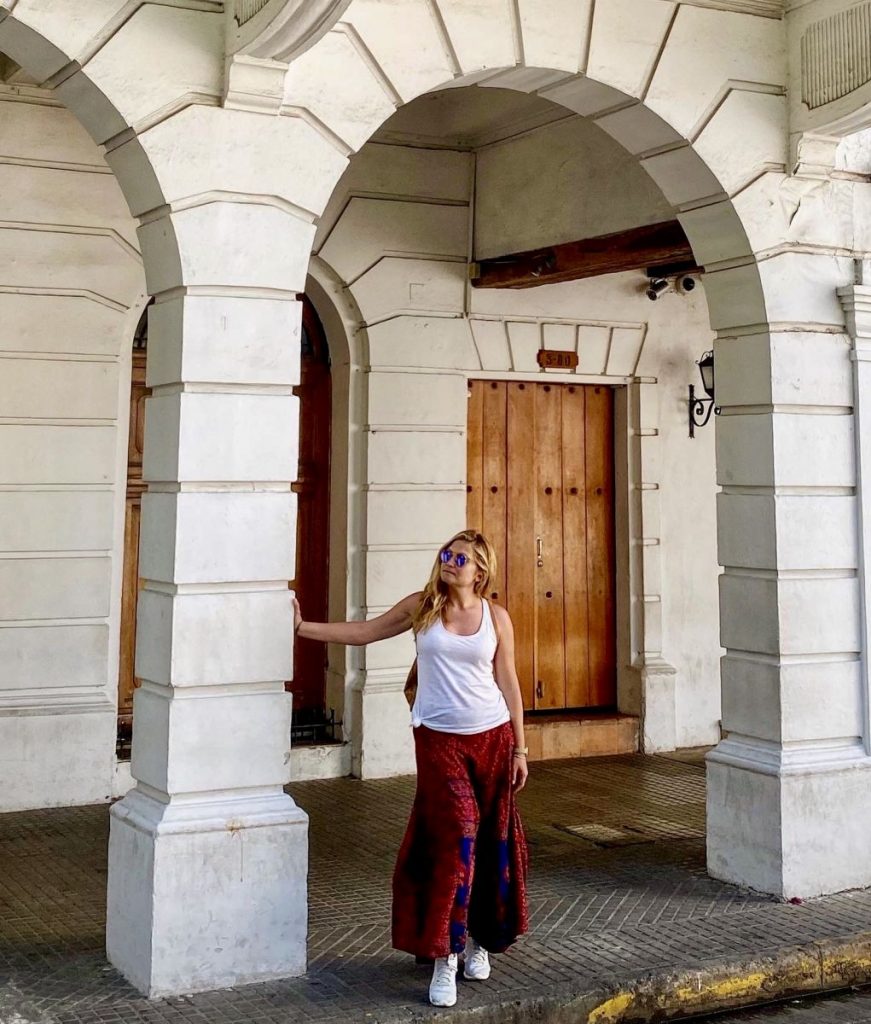
What to do in Cartagena: the itinerary through the locations of Gabriel Garcia Marquez, the Scribes’ Porch
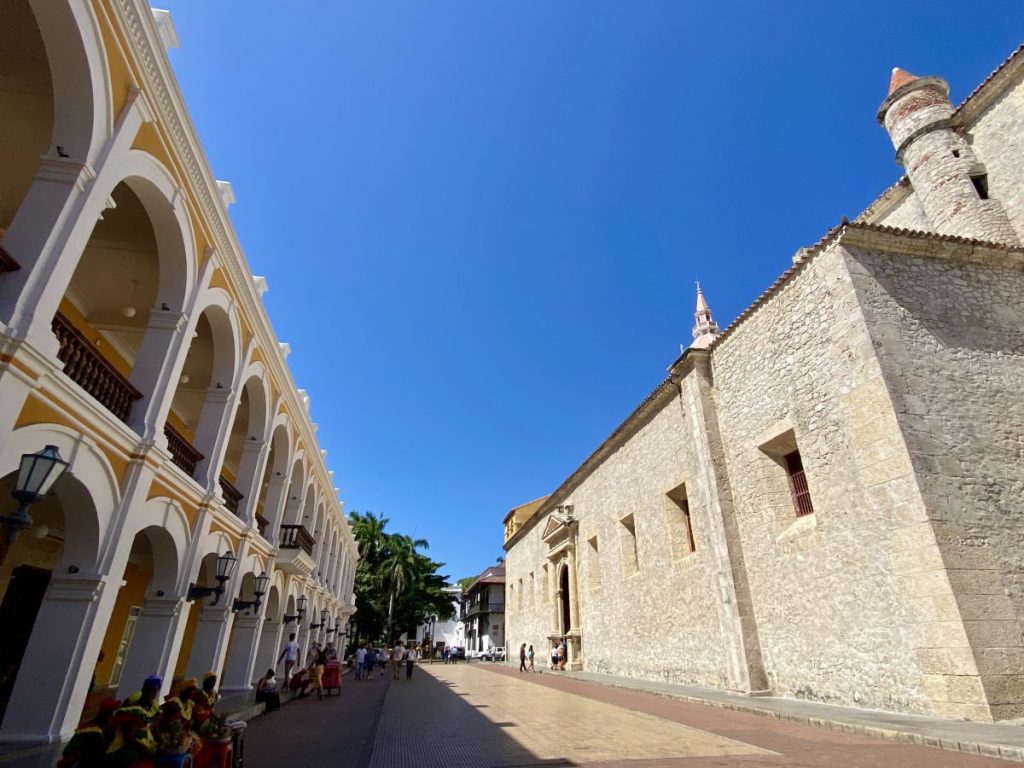
What to do in Cartagena: the itinerary through the locations of Gabriel Garcia Marquez, the Cathedral
Little far, in a side of Parque del Bolivar, is located the Scribes’ Porch, the place where Florentino – to free his feelings he hid too long – wrote with a not common passion and then he sold love letters upon commission.
In Cartagena’s Cathedral, on the corner opposite Parque De Bolivar, Fermina Daza marries Juvenal Urbino.
The novel’s descriptions are so detailed that also Fermina Daza’s paternal house in Plaza Fernandez de Madrid was identified geographically – Parque de los Vangelos in the novel –the place where every day Florentino, sit on a bench, waits for the passage of his beloved.
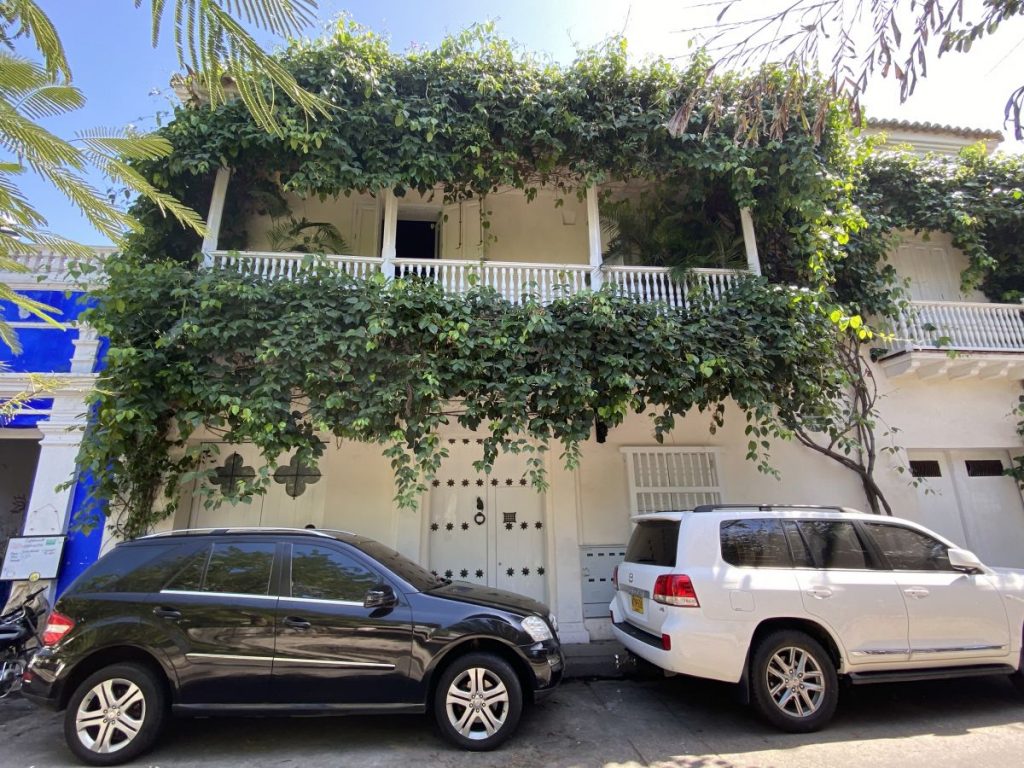
What to do in Cartagena: the itinerary through the locations of Gabriel Garcia Marquez, Fermina Daza presumed home
The novel “Of Love and other Demons” take cues right from one of the many stories told his grandson Gabo by Tranquilina Iguarán Cote.
The young Sierva María de Todos Los Ángeles is the rebel daughter of a marquees and a woman of the people that one day is bitten by a rabid dog getting an illness she doesn’t recognize, until then she defines it a devil’s possession. The girl is enclosed in the convent of cloistered nuns – the actual Sofitel Legend Santa Clara – where among the tortures of the nuns (who were convinced to have in front of them the Devil itself) she will get comfort only in the words and the support of a young priest. Then she will fall in love with him, but she will get separated from him and shortly after she’ll die.
A story that has its roots in a fact really happened and in the finding – Gabo witnessed it, too – in the crypt under the Santa Clara (today it can be reached through El Coro Lounge Bar) a girl’s body with long brown hair who recalls the description of Sierva María.
So, “Of love and other Demons” was born like that. Or we’d say from here.
You can follow your itinerary discovering the locations of Gabriel Garcia Marquez using this report, marking on the map of the old town all the sites described.
But if you want to go further and enjoy a real emotional experience among the words and the life of Gabriel Garcia Marquez, you can rely on a very prepared local guide, fond of Gabo and his works. Among other things she had also the chance to know him personally.
She is Esther Pardo Vides and is an official Colombian guide who lives in Cartagena and speak a perfect Italian.
She introduced me and involved me with a lot of passion and kindness into Gabo’s world, unveiling curious issues, anecdotes and backstories about him and his works, elements that it would be almost impossible to discover.
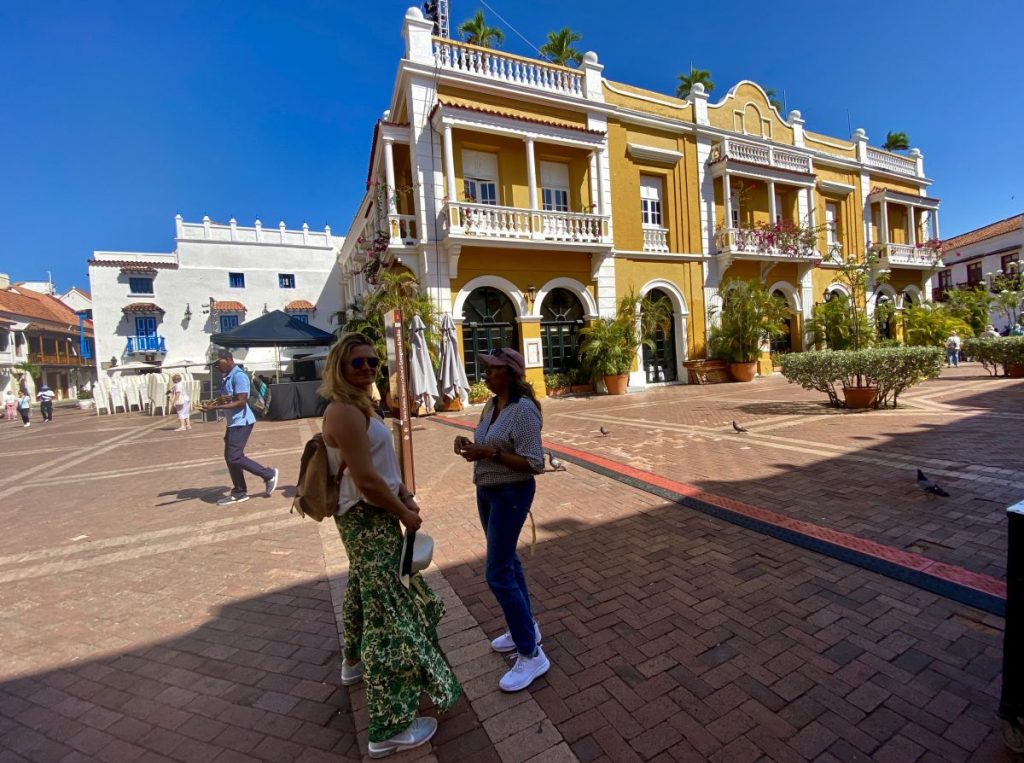
What to do in Cartagena: useful tips to plan the itinerary with a local guide, together with Esther Pardo
I give you her contacts: if you decide to book a tour with her, tell her that I send you!